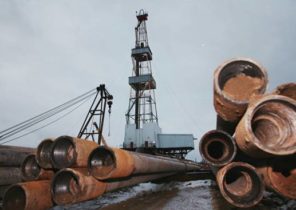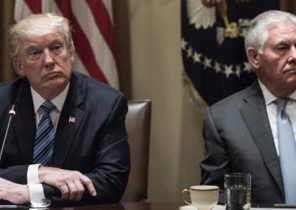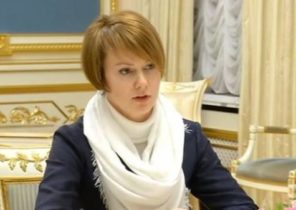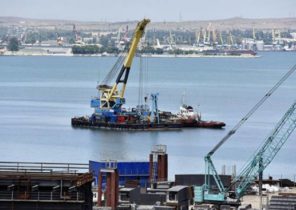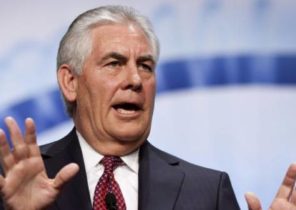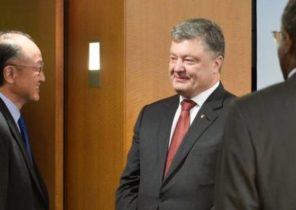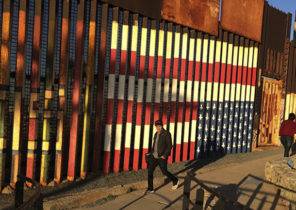
In Belarus, the people took to the streets, despite the fact that the law forbids them to do so. The protest began in Minsk on Friday, about two thousand people came to the “March of the angry Belarusians”. The weekend was followed by protests in Gomel, Brest, Mogilev and Vitebsk. They were attended by from one hundred to one thousand people, demonstrations were also held on Monday.
From one hundred to two thousand protesters in each city — these numbers don’t seem impressive. But the protests were held despite the fact that have not been agreed with the authorities, as, in fact, the law requires. A Belarusian law enforcers in years past often suppressed the demonstrations, beating protesters with batons, as, for example, during the last major protests in 2010, and also during “silent protest” in 2011. The fact that people still decide on such events speaks volumes.
They are protesting against the imposition of a special tax for unemployed “freeloaders” as they call the Belarusian government. In April 2015, President Alexander Lukashenko signed a decree № 3 “On the prevention of social dependency.” In this decree it was agreed: citizens, more than half had no formal employment, will have to pay for public goods provided by the state.
Leading the main channel ONT explained innovation as follows: “Go clean the streets, call a doctor or take the children to school — take part in financing. Otherwise, the education and the health of your child, you will have to pay for others.” Those who, despite these rules, facing the street, probably do not understand the meaning of the act. The presenter added: if you succeed without a job for six months to make ends meet, obviously, you’ve got the money — so very well, and you can contribute.
“I have to pay for their poverty”
The law affected about 470 thousand Belarusians: men aged 18 to 60 years and women from 18 to 55 years. The government requires them to pay about 180 euros in recalculation on the European currency over one year without employment. For comparison, the average monthly salary is about 400 euros.
About 45 thousand people have already paid tax. Some of the other protests. And they do it only now, because February 20 is the deadline for paying tax for the past year.
One of the protesters 29 — year-old Michael Luksha from Brest. He says he has no money to pay tax — and how to do it without any work. Michael has a higher education, he previously worked as a librarian. But in this position he received so little money, quit his job and began to earn a living, working as a loader. Then he lost his job.
In winter there is no hope to find a job — resentfully said Michael. “I am in deep crisis. Though I help parents, but their opportunities are limited. And now I must still pay for their poverty”.
Thousands of people can’t find work
Michael Luksha — not the only one who can’t find work. Many have no work, especially in the regions, although this is not reflected in official statistics. “In 2016 throughout the country was fired on 108 thousand people more than got the job,” says Valery Karbalevich, a political analyst at the Minsk analytical centre Strategy. “In the month of 9,000 people lose their jobs, but can’t find a new one”.
Even if you have a job, you often have to go on unpaid leave, as many companies work only two or three days a week. The economy is doing bad. According to Karbalevich, in these difficult times, the government is also punishing the unemployed, instead of trying to help them.
If you lose your job in Belarus you have two options: you can register at the state employment center, in this case you are making in the official statistics for unemployment and you receive a small allowance of 15 euros per month in terms of the European currency. Was the citizens, in turn, commit a few days per month to take part in socially useful works.
But because these are the hard work, the majority of Belarusians do everything in order to avoid official registration. There is a positive side effect for the government: the official unemployment rate is very low.
The second option is not to register in the employment center, but in this case lose the right to state support and undertake, under decree No. 3, special tax, which the majority simply does not.
What will Lukashenko?
It is difficult to imagine how the government will react Belarus. Alexander Lukashenko just making every effort to prove to the West that he is not a dictator. So again, beat protesters with batons, as before, as the option is not considered likely.
Instead, Lukashenko could repeal the law. But for this he needs a suitable occasion. Says Karbalevich from the analytical center “Strategy”, the President is not used to admit their mistakes. “If he’s under pressure from protesters now repeal the law, it will signal its weakness and much of his touches”. Karbalevich therefore, it is difficult to imagine that Lukashenko will do so.
